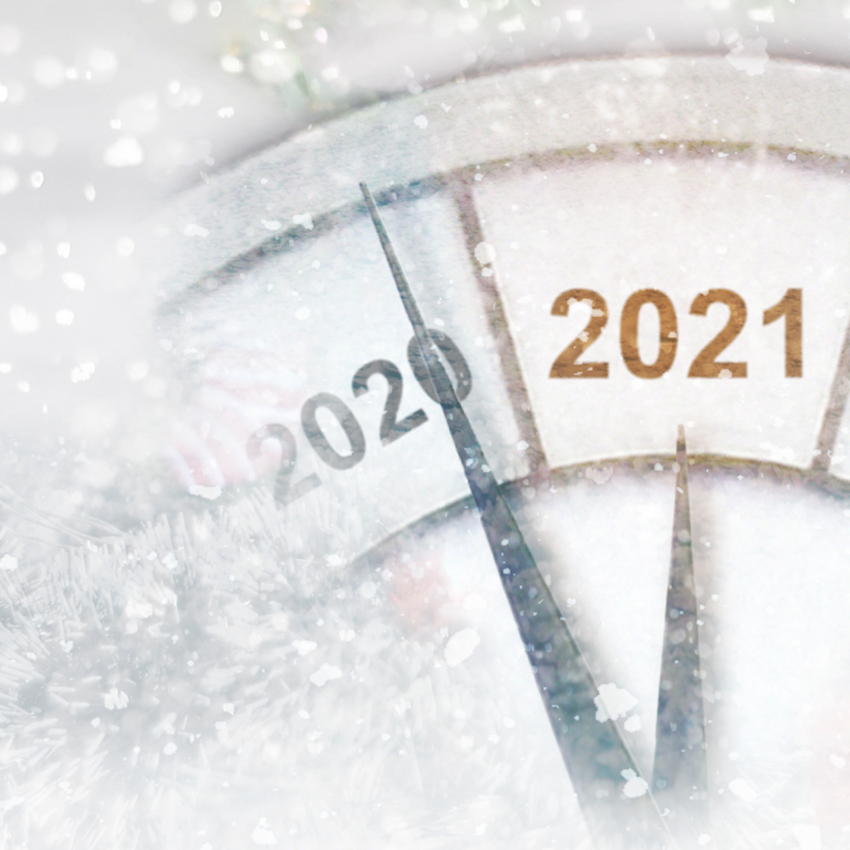In so many ways, the date of a new year is arbitrary. In Western societies, we’re still on the Gregorian calendar, but there are plenty of cultures that walk to a different time drummer: Hebrew, Maya, Chinese, Navaho, Islam. Yet it is the significance of a new year to mark time passing that becomes the ritual.
[callout]Rebrand yourself as a marketplace, not a big-box, discount, specialty or department store.[/callout]
One could argue that the whole world was asleep at the wheel in terms of dealing with the ultimate impact of the pandemic. It’s not as though we had no warnings, Bill Gates, the scientists, the UN – a pandemic was a very real threat, and as Tom Friedman of the NY Times has said, just a warm-up for climate change. Regardless of politics, 2020 is hindsight according to Tom Foolery (and well worth watching). So, on the only Winter Solstice of 2020, let’s consider foresight for 2021.
- If you’re going to offer brick-and-mortar retail, make it an experience worth having. Personal touches, unique experiences, community, relevance — more than a store. Make it safe, make it secure, make it like the general store of the 1800s where everyone knows your name – in a non-creepy way. In short, the physical retail store is your stage; put on a good show.
- Edit your inventory. Scarcity creates value. If the velvet slippers to wear with your sweats on Zoom calls are sold out (Birdies), great. Create demand. And use customer demand to develop similar new products, also with a short run. We can’t have everything, even though we’ve been led to assume the opposite.
- If you’re going to bombard us with emails, make them into narratives or personal messaging that makes sense to the customer. Raise the level of communication beyond 80 percent off something I don’t even want to buy.
- Quit boarding up your storefronts. The desolation of urban streets with blocks of plywood faced windows is discouraging and a visual acquiesce to failure. Sure, there’s self-protection against possible civil unrest, but for residents, it’s seen as either a move out of fear or outright hostility to the public. My fervent hope is that we get back to being productive, empathetic neighbors in 2021 – and that includes the retail brands that make up our local communities.
- Quit complaining. Help each other. Feed the hungry (use your foodservice resources). Clothe the people in need (excess inventory). Make the store a hub for community outreach and volunteering (mobilize your employees). Shift the consumer culture to a collaborative culture to help keep your local communities alive. It’s in your best interests to make yourself relevant and viable as a trusted partner for your customers so they stick with you.
- Take responsibility for all the cardboard shipping boxes.
- Rebrand yourself as a marketplace, not a big-box, discount, specialty or department store. A marketplace offers a range of essential and nonessential products and services, which obviously vary depending on the customer mix. Think of Agway as a marketplace for farmers and gardeners as the model for your own version of why you matter to your customers. Provide answers in addition to stuff. Think of Home Depot as a solution center for homeowners and professionals. Transcend the antiquated descriptor of a retail store that is by definition, self-limiting.
- Observe what your children (or any tween/teen) is doing when they are supposed to be doing something else. That’s an open door to the future – a fusion of experience, tech, communications, education, entertainment and diversion.
- Listen to your core customers. Like the next-gen, they will give you the signals you need to shape your business around their needs and desires. Put yourself in their shoes as you experience your store. Design the environment for them. Don’t confuse your tastes and preferences with theirs.
- As a leader, surround yourself with team members who are smarter than you are. Whose diversity and inclusion reflect your customer base. Give the next-gen a seat at your table and listen to them. Work from strategies and models that can pivot when they must. Use systems thinking to plan for the future. Learn from other industries and apply their innovations to yours.
Bonus: Resilience. Warren Bennis, scholar, organizational consultant and author, wrote in the Harvard Business Review and still spot-on today, about the crucibles of leadership, “The most reliable indicators and predictors of true leadership is an individual’s ability to find meaning in negative events and to learn from even the most trying circumstances. Put another way, the skills required to conquer adversity and emerge stronger and more committed than ever are the same ones that make for extraordinary leaders.” Practice resilience: It’s your moment to seize.




